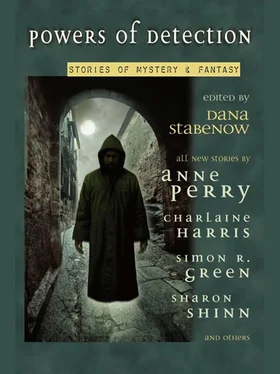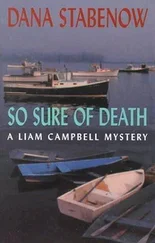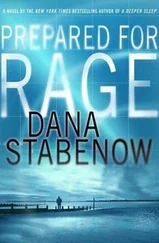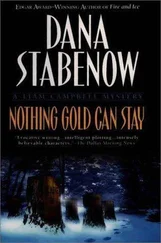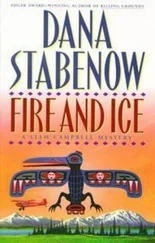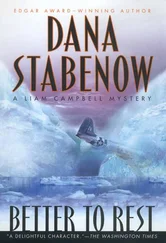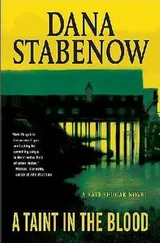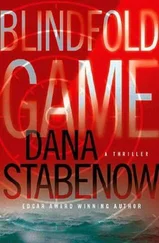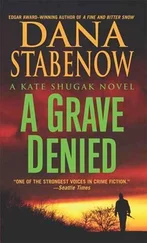“So, Buster crawled up that beach. It was all he could do, crawl, and it seemed to take him hours to make the journey, although it was but a few minutes. He kept passing out from the chill, but every time he felt like drifting to sleep, a seagull would swoop down and nip at him.
“At first he thought they were saving him, as indeed they were, only they also nipped at his flesh and took little bites, once they had torn away his rain bibs and his sweatshirt. The seagulls harassed him and drove him higher up onto the beach, to his own safety, and their justice.
“For up on the beach, by a long line of sea wrack from the last tide, a line of fresh kelp and dead crabs, a thousand seagulls waited for Buster. He crawled up to the high-tide line, hoping it would be high enough, and collapsed.
“And the seagulls took him. They ripped at his flesh, at his back and legs, tearing out a thousand chunks of skin and muscle. They bit off the ends of his fingertips, ate his ears, ate the calluses on his feet and one of his eyes. They ate the tip of his nose and part of his lips. It was as if the seagulls knew how much to eat of him without actually killing him, so that he would suffer to the end of his days, half-blind, half-crippled, face ruined.
“Only, the seagulls’ feast saved him. By then the tide had begun to come in, his father and brothers and uncles had hauled in their nets, and it happened that his father looked toward the shore of the island and saw this great cloud of seagulls. He thought they might have found a whale. Back in those days, fishermen also took whales, and even a beached whale could be worth something. Buster’s father took out his big mariner binoculars, looked to shore, and saw Buster’s flailed back, dripping red, and finally realized Buster had fallen overboard and washed up on the beach.
“His father and uncles took a little dinghy up to the beach and rescued Buster. They wrapped him in a blanket, soon soaked with blood, and bathed him in fresh ocean water. The salt stung him so hard he couldn’t cry, and it healed his wounds. Later, the town doctor stitched up the worst of the wounds as best he could. Without good fingers, though, Buster couldn’t fish, and with so ugly a face and lips that could not even kiss, he never married. The only thing he could do was pick up trash and sell junk, and that’s what he did until the end of his days.
“Which is why, Travis, you shouldn’t chase seagulls.”
The boy looked at him, stunned, and for a moment Uncle thought he might have reached him. Then the boy laughed, and Uncle knew his story hadn’t worked. He shook his head.
“So what happened to Buster?” Travis asked. He might not have understood, but at least he appreciated a good story.
“Buster decided he had to redeem himself to the seagulls. So mean had he treated them, though, it became a difficult task. He scrounged fish scraps and saved them for the seagulls, then saved them for the eagles to eat so they wouldn’t eat the seagulls. Buster began walking the beaches for trash and junk, junk to sell or use or salvage. Sometimes when people lost things on the beach or in the sea, they would pay Buster to find them for him, and often he did.
“One day after Buster had become a young man, he found a bit of pink flesh on the beach, flesh that looked like no flesh he had ever seen. He put it up to what was left of his nose to smell it, and amazingly, it became his nose. The flesh just sort of oozed onto his face, and where he had not had a nose, he now did, although it stayed pink for a long time, and even when it tanned, always remained slightly lighter then the rest of his face.
“Many months later, he found another bit of flesh, one of his fingertips. Over time, over many, many years, bit by bit he regained the parts of his body the seagulls had eaten. He realized that what happened was that the seagulls had shat him out. The seagull crap took time to gather together and become that which the seagulls had eaten. And then, of course, it took time for the flesh to wash up on the beach, and for Buster-he long ago quit using that name, though-to find those small parts of his body. It took many bags of trash, junk, and some treasure for him to haul off, but there you go.”
Travis glared at him now, become again a surly boy. “Ah, that’s just a story,” he said. “It’s not true.” He held out his hand for the bit of blue beach glass.
“Oh? You think not?” Uncle pulled off his gloves, finger by finger, and showed Travis his wrinkled hands. “See these fingers? See how the tips look a different color? And see my lips, how what you think is scar is just that part of my lips the sea gave back? And see my nose?” Uncle lifted up the corner of his hat, then, showing the boy his empty eye socket. “And see my lost eye, the eye I have searched for ever since that day long, long, ago when the boy who chased seagulls learned his lesson.”
“Creepazoid!” the boy yelled, and ran away before Uncle could whack him with his bamboo staff.
Uncle watched the boy run back up the beach, toward town. Along the way, Travis deliberately veered from his path to run through a flock of seagulls, only one or two of whom grudgingly flew up. They had grown tired of the boy’s game.
Uncle turned and continued on his way, back to his tiny driftwood shack heated by coal, back to his single bed, his single room, and the junk and treasure he scavenged and sometimes sold. As the sun moved down below the bluff above town, one last flicker of light caught a shiny something on the beach. Uncle reached down and picked it up. At first he thought it might have been a child’s marble, ground cloudy by the beach, but when he held it up to inspect, the marble rolled into his empty socket and became his eye.
Uncle looked at the world in stereo again, the world no longer flat but wider, although a bit fuzzier with the cataract in his old and weathered eye. Well, he thought, that’s the last of it, the last bit of flesh returned from the sea. His cabin and his bed awaited him, and he wondered if he’d bother to make a fire for the night, or if he even needed to.
Must have made my peace with the sea, he thought, with the seagulls.
And Buster, born as Percy, now known as Uncle, went home, perhaps to die, perhaps to live another day, but never, ever, ever to chase seagulls.
Palimpsest by LAURA ANNE GILMAN
“That had better be coffee.”
“Hazelnut. Double.”
“You’ll live.” Wren’s arm reached out from under the blanket and snagged the cup out of her partner’s hand. Without spilling a drop, she raised herself on her elbows and took a sip.
“God. I may be human after all.” She peered out from under a tangle of mouse-brown hair at the man standing in the dim light of her bedroom. He looked broad-shouldered and solid and reassuringly familiar. “What time is it?”
“Nine. A.M.,” he clarified. “Rough night?” Sergei sat down on the edge of her bed, forcing her to scoot over to make room.
“No more so than usual. The Council came down hard on the piskies who were dragging people under the lake, so there’ve been some minor temper tantrums in protest, but other than that everything’s quiet. Well, quiet for them, anyway.”
There had been the equivalent of a gang war in Central Park earlier that year between water and earth sprites. Fed up, the city’s independent Talents-lonejacks-and the Mages’ Council had declared truce long enough to make sure things didn’t get out of hand again. Wren, like all lonejacks, distrusted the Council on principle, and the Council and their affiliates thought lonejacks all were troublemaking fools, so it was an uneasy truce to say the least.
Wren took another sip of the coffee and decided that there was enough caffeine in her bloodstream to move without breaking apart. She got out of bed, cup still in hand, and staggered to the dresser to pull out a clean T-shirt.
Читать дальше
